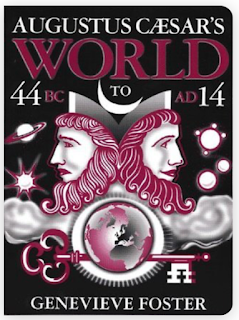Death of Demosthenes
When Alexander (the Great) went to the East, the great orator Demosthenes (who wasn't a fan of Alex) tried to persuade the people to rise up against him and take back their freedom. But they didn't heed him. However, when they heard Alexander was dead, then they were more agreeable. There was a man named Phocion who wanted the Athenians to have patience. Phocion argued that they should at least wait until the rumor was confirmed. After all, if he was dead today, he'd still be dead tomorrow and the next day. What was the rush?
The Athenians were not patient however and, joined by quite a few little cities (except Sparta), they marched to confront the Macedonians at Thermopylae.
At first the Greeks were successful. They captured a fortress and besieged it. But then the Macedonians were able to defeat the Greeks at another time. That was all there was to the war really because Antipater, the Macedonian general, made peace with each of the cities separately.
Antipater was so angry at the revolt that he swore to kill any who had had a part in stirring up the people. He learned that Demosthenes was one of them. He ordered his soldiers to take him prisoner. Demosthenes caught wind of this and was able to escape, but only to a temple of Neptune. Although usually temples were holy and weapons were not brought in, the soldiers went in anyway to get him. When Demosthenes saw that he had no choice, he asked if he might take a moment to write a litter to his friends. The soldiers saw no problem with this and watched him take up his parchment and reed.
Demosthenes would write a bit then bite the tip of the reed, as if he was thinking. But he didn't continue to write, instead he covered his head with his hood and remained quite still. The soldiers waited a bit but then decided to check on him. He didn't answer when they called, so they pulled back the cloak and to their horror, saw that he was clearly about to die! They rushed him out of the temple because it was bad to defile the temple with death.
Demosthenes had thought it better to kill himself than be a prisoner so he had hidden poison in the reed that he had bitten when pretending to write to his friends.
The Greeks then thought that they should have listened to Phocion. They realized their mistake and put him at the head of their affairs. But Phocion was not very clever and much too cautious. His cautious nature eventually turned to cowardice. He feared the Macedonians so much that over time, they controlled more and more of Greece until after just a few years later, Antipater, the Macedonian governor, controlled all of it.
The Last of the Athenians
Antipater was now in control of all of Greece but he was not a cruel ruler because he wanted to make friends so he would have help securing his portion of the realm that had been Alexander's. He soon heard that Perdiccas was on his way back from the East and had the infant king, named after his father, Alexander. Antipater knew that Perdiccas would want to make the infant king and himself regent, but Antipater wanted to be regent.
Antipater decided to fight rather than give up easily. At this time many of Alexander's generals were also unhappy so they revolted as well. Perdiccas was surrounded by enemies but even so, he fought bravely, and even led an army against Ptolemy in Egypt. There was the Nile river to cross in order to get to Ptolemy, and in doing so many of his soldiers were eaten by crocodiles! Those who survived were so angry with Perdiccas that they fell on him and killed him.
Around this time, Antipater also died. (So much for all that fighting!) Cassander, his son, was left to quarrel with a general, Polysperchon, over ruling Macedon. They both amassed an army to meet in battle.
Though the Athenians tried to remain neutral, Polysperchon stormed into the city and accused Phocion and others of siding with Cassander. He condemned them to die by poison from hemlock plant. But there wasn't enough to kill them all! Phocion was forced to give money so that more could be bought. He said "It seems one cannot even die for nothing in Athens."
After Phocion died, it was said he was the last of the Athenians because he was the last notable politician; no one even tried to win back the freedom of Athens or uphold the city's power.
Roxana and her son (Alexander) were brought to Macedon and placed under the protection of Polysperchon. When the infant Alexander's grandmother saw him, she was determined to secure the throne for him. She killed the "idiot king" Arridaeus and all his family!
Cassander pretended to want to avenge the crime, captured and killed Olympias, the grandmother. He also wrested power of Macedon and Greece from Polysperchon. After this, there was no one to fight for the mother and child, so he had them imprisoned, then killed them, too. Twelve years after Alexander the Great's death, all of his family was also dead. His empire fell to quarreling and split into several states.
(The other chapters for this week are titled "Ptolemy in Judea," "The Wonderful Library," "The Colossus of Rhodes," "The Battle of Ipsus," "Demetrius and the Athenians," and "The Achaean League.")





No comments:
Post a Comment